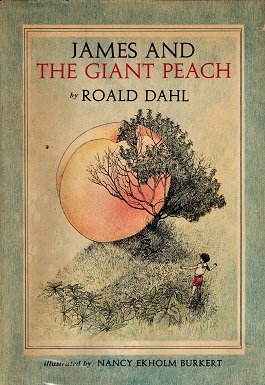Eugene O'Neill
Explore the timeline of Eugene O'Neill, America's only Nobel Prize-winning playwright, known for his dramatic works such as 'Long Day's Journey Into Night' and 'The Iceman Cometh.' Discover key events in his life from his birth in 1888, through his groundbreaking career in theater, to his death in 1953.
Birth of Eugene O'Neill
Eugene Gladstone O'Neill was born on October 16, 1888, in a Broadway hotel room in New York City. He was the son of James O'Neill, an actor, and Ella Quinlan O'Neill. He would grow to become one of America's greatest playwrights, known for his plays that incorporate dramatic realism and dark themes. His childhood was marked by instability and he spent several years at different boarding schools.
The Provincetown Players debut Eugene O'Neill's work
On November 3, 1916, the Provincetown Players, a theatre company in Massachusetts, showcased a series of one-act plays that included Eugene O'Neill's famous drama, 'Bound East for Cardiff.' This marked the first time O'Neill’s work was professionally produced. The Provincetown Players were crucial in O'Neill's early career, providing a platform that allowed him to develop and showcase his dramatic work.
'Beyond the Horizon' opens on Broadway
'Beyond the Horizon' opened on Broadway on February 2, 1920, marking Eugene O'Neill's first major success. The play focuses on the themes of unfulfilled potential and the longing for a better life, capturing pivotal elements of American society. It received the Pulitzer Prize for Drama, the first of four that O'Neill would eventually win for his contributions to American theatre.
'Mourning Becomes Electra' premieres
The premiere of 'Mourning Becomes Electra' on November 11, 1931, signaled one of Eugene O'Neill's most ambitious works. It is a trilogy based on the Oresteia by Aeschylus, set in post-Civil War New England. This monumental work reveals the complexities of human psychology and familial loyalty and is considered a masterpiece for its innovative structure and depth.
Eugene O'Neill awarded the Nobel Prize in Literature
Eugene O'Neill was awarded the Nobel Prize in Literature on November 5, 1936, "for the power, honesty, and deep-felt emotions of his dramatic works, which embody an original concept of tragedy." He became the first American playwright to receive this honor, which acknowledged his profound impact on the field of drama and his status as a pioneering figure in creating American theatre.
'The Iceman Cometh' has its Broadway premiere
'The Iceman Cometh,' one of Eugene O'Neill's most significant plays, had its Broadway debut on October 9, 1946. The play, set in a bar in New York City, explores themes of delusion and self-deception. It is considered a powerful exploration of human despair and folly, and over the years, it has been noted for its challenging and profound dialogue, contributing to its lasting legacy in American theatre.
Death of Eugene O'Neill
Eugene O'Neill passed away on November 27, 1953, in the Hotel Shelley Arms in Boston, Massachusetts. His death marked the end of an era in American theatre. Despite a life plagued by personal struggles and health issues, O'Neill left behind a legacy of profound works that reshaped American drama. His contributions were recognized worldwide, as he left a lasting impact on the stage with his unique vision and style.
'Long Day's Journey Into Night' premiers posthumously
On February 6, 1956, Eugene O'Neill's autobiographical play 'Long Day's Journey Into Night' was posthumously premiered in Stockholm at the Royal Dramatic Theatre. This searing drama gives insight into O'Neill's own haunted family dynamics. The intensity and depth of the characters and the raw portrayal of addiction and family trauma cemented its status as an American classic, reflecting O'Neill's legacy as a master playwright.
O'Neill's 'The Eugene O'Neill Memorial Theatre' dedicated
On March 3, 1967, the Eugene O'Neill Memorial Theatre was dedicated in tribute to the playwright's contributions to American drama. Located at 230 West 49th Street, New York City, this theatre became a site for the celebration and admiration of O'Neill's work, home to many relevant plays and revivals that honor his influence on the art form.
Eugene O'Neill Theater Center opens National Playwrights Conference
The Eugene O'Neill Theater Center inaugurated its National Playwrights Conference on January 12, 1981. Located in Waterford, Connecticut, the center's goal was to nurture and develop new playwrights, and it became a significant venue dedicated to exploring new theatrical concepts and innovations. It stands as a testament to O'Neill's enduring legacy in the advancement of American drama.
Frequently asked questions about Eugene O'Neill
Discover commonly asked questions regarding Eugene O'Neill. If there are any questions we may have overlooked, please let us know.
What is the timeline of Eugene O'Neill's life?
What impact did Eugene O'Neill have on American theater?
What are some of Eugene O'Neill's most famous works?
Who was Eugene O'Neill?
Related timelines
More timelines connected to Eugene O'Neill







